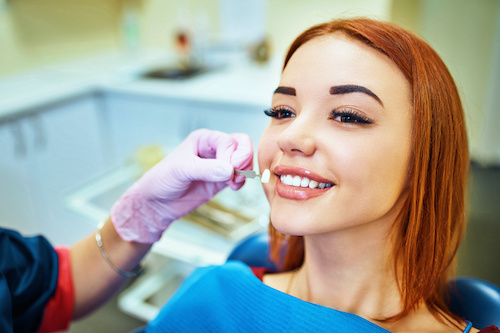Dental crowns and bridges are popular solutions for restoring the function and aesthetics of your teeth. While they are designed to be durable and long-lasting, proper maintenance is essential to ensure their longevity and effectiveness. This article will guide you through effective strategies to maintain your Dental Crown and Bridges in Dubai.
Understanding Dental Crowns and Bridges:
Before diving into maintenance tips, it’s important to understand what dental crowns and bridges are:
- Dental Crowns: These are tooth-shaped caps placed over damaged or decayed teeth to restore their shape, size, strength, and appearance. Crowns can be made from various materials, including porcelain, metal, or resin.
- Dental Bridges: These are used to fill gaps created by missing teeth. Bridges consist of one or more artificial teeth anchored to the adjacent natural teeth (abutments) using crowns.
Both crowns and bridges can enhance oral function, improve aesthetics, and help maintain the alignment of your teeth. However, they require proper care to ensure they remain in good condition.
Daily Oral Hygiene Practices:
Maintaining excellent oral hygiene is crucial for the longevity of your dental crowns and bridges. Here are essential daily practices to adopt:
Brush Regularly:
Brush your teeth at least twice a day with fluoride toothpaste. Use a soft-bristled toothbrush and focus on:
- Gentle Brushing: Avoid aggressive brushing as it can damage the crown or bridge and irritate your gums.
- Angle of the Brush: Hold your toothbrush at a 45-degree angle to your gums to effectively clean around the crowns and bridges.
Floss Daily:
Flossing is essential for removing food particles and plaque that can accumulate around crowns and bridges. Use dental floss or interdental brushes to clean between your teeth and around the restorations.
- Flossing Technique: Gently slide the floss between your teeth, wrapping it around the crown or bridge. Be cautious not to snap the floss against the dental work, which could dislodge or damage it.
Use Mouthwash:
Incorporate an antibacterial mouthwash into your oral care routine. This can help reduce plaque, prevent gum disease, and freshen your breath. Look for a mouthwash that is alcohol-free to avoid drying out your mouth.
Dietary Considerations:
What you eat plays a significant role in the health of your dental crowns and bridges. Here are some dietary tips to consider:
Avoid Hard Foods:
While dental crowns and bridges are designed to withstand pressure, it’s wise to avoid hard foods that can chip or crack them. Foods to avoid include:
- Hard candies
- Nuts
- Ice
- Crunchy vegetables like raw carrots
Limit Staining Foods and Beverages:
Certain foods and drinks can stain your crowns, especially if they are made of porcelain. Limit your intake of:
- Coffee and tea
- Red wine
- Berries
- Soy sauce
If you consume these, rinse your mouth with water afterward to minimize staining.
Maintain a Balanced Diet:
A diet rich in vitamins and minerals can promote overall oral health. Focus on foods high in calcium and phosphorus, which support strong teeth and gums. Good options include:
- Dairy products
- Leafy greens
- Fish
- Nuts
Regular Dental Check-ups:
Regular visits to your dentist are essential for maintaining your crowns and bridges:
Schedule Routine Cleanings:
Professional dental cleanings should be scheduled at least twice a year. During these visits, your dentist can:
- Remove plaque and tartar buildup.
- Check the condition of your crowns and bridges.
- Address any issues before they become serious.
Discuss Concerns Promptly:
If you experience any discomfort or notice changes in your dental crowns or bridges, don’t hesitate to contact your dentist. Early intervention can prevent complications and extend the lifespan of your restorations.
Lifestyle Habits:
Certain lifestyle choices can impact the condition of your dental crowns and bridges. Here are some habits to consider:
Avoid Tobacco Products:
Smoking and chewing tobacco can contribute to gum disease, leading to complications with your crowns and bridges. Quitting these habits can improve your oral health and the longevity of your dental work.
Wear a Mouthguard:
If you grind your teeth (bruxism) or participate in contact sports, consider wearing a mouthguard. This protective device can prevent damage to your crowns and bridges from grinding or physical impact.
Understanding Potential Issues:
Being aware of potential issues with your dental crowns and bridges can help you maintain them more effectively:
Sensitivity:
It’s normal to experience some sensitivity after receiving crowns or bridges. However, if sensitivity persists, it could indicate an underlying issue that needs attention.
Loosening or Dislodging:
Crowns and bridges can become loose or dislodged over time. If you notice your crown or bridge feels unstable, contact your dentist immediately for evaluation.
Gum Health:
Monitor your gums for signs of inflammation, bleeding, or recession around your crowns and bridges. Healthy gums are crucial for supporting your restorations.
Conclusion:
Maintaining your dental crowns and bridges is essential for ensuring their longevity and effectiveness. By practicing good oral hygiene, making mindful dietary choices, attending regular dental check-ups, and adopting healthy lifestyle habits, you can keep your dental work in excellent condition. Remember, proactive care is the key to a healthy smile and the success of your dental restorations. If you have any questions or concerns about your crowns or bridges, always consult your dentist for personalized advice.





Comments